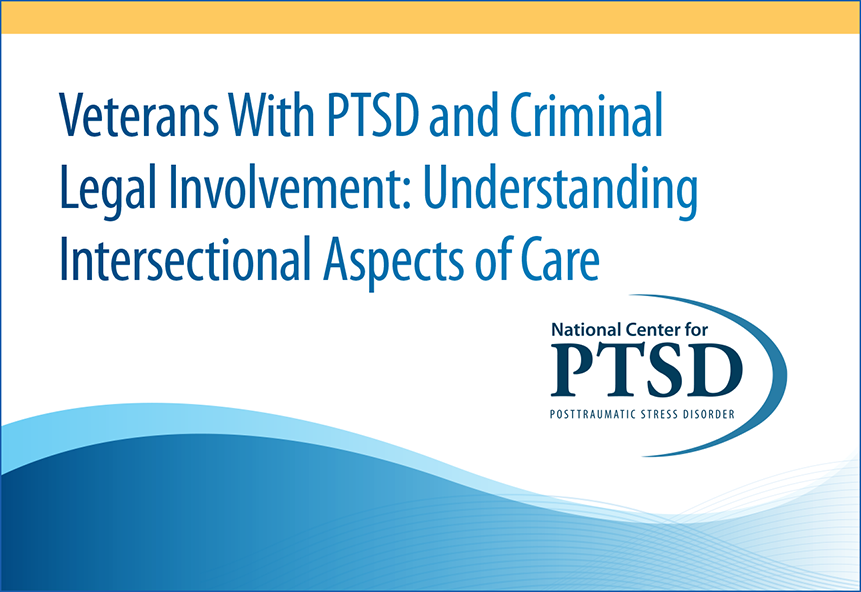PTSD: National Center for PTSD
Veterans with PTSD and Criminal Legal Involvement: Understanding Intersectional Aspects of Care
Continuing Education
This section brings together free in-depth Continuing Education resources for the Professional community concerned with trauma.
Veterans with PTSD and Criminal Legal Involvement: Understanding Intersectional Aspects of Care
- Date Created: 06/30/2023
- Time to Complete: 1 hour
- Credits: ANCC, APA, ASWB, ACCME, NBCC, Other Orgs
- Skill Level: Intermediate
- Course Series: PTSD 101, PTSD Consultation Lecture Series
 Author(s):
Author(s):
Description
Veterans with criminal legal involvement have heightened rates of mental health and psychosocial needs, including PTSD. Legal involvement and trauma histories often serve as reciprocal stressors that make Veterans' experience in treatment and in navigating the criminal justice system more challenging. Furthermore, treatment providers may not be aware of the typical pathways that lead to justice system involvement, assess for the stressors and risks associated with this justice system involvement, nor be aware of the stigma these Veterans often face while accessing treatment at VA.
This course explains a model for understanding justice-system involvement of Veterans facing complex clinical and contextual factors. The authors describe the relationship between justice-involvement and trauma, how to work with Veterans who have compounding clinical and legal stressors, and how to recognize and address potential stigmatization when working with these Veterans.
Goals and Objectives
- Understand the relationship between criminal legal involvement and clinical risk / symptom presentation
- Identify core treatment strategies for working with Veterans who also have criminal legal involvement
- Describe ways Veterans with criminal legal involvement experience stigma and identify strategies to address


























